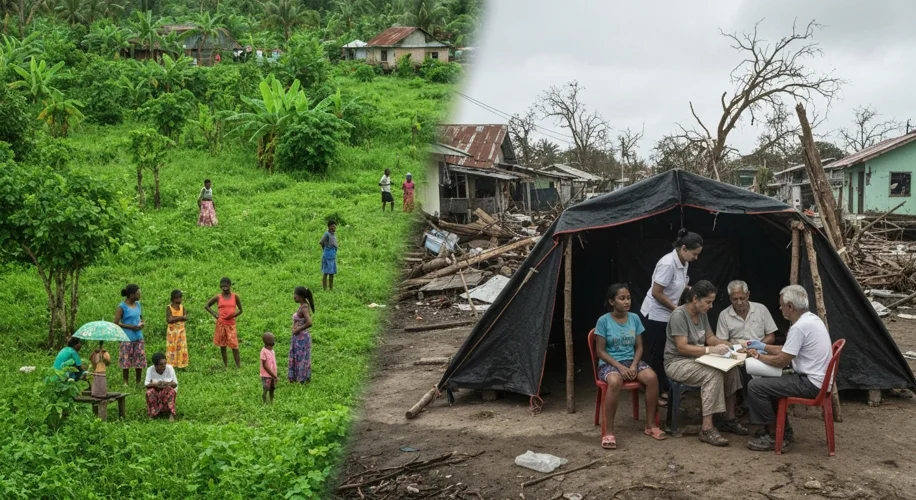Did you know that the impact of tropical cyclones stretches far beyond the immediate destruction? A recent global study has uncovered a disturbing long-term health consequence: cardiovascular hospitalizations continue to rise for months after these extreme weather events.
This isn’t just about immediate injuries. The research highlights that strokes and heart attacks see a significant increase in the months following a cyclone, particularly affecting poorer, working-age men. This finding is crucial because it underscores how climate-related disasters disproportionately impact vulnerable populations, leaving a lasting health burden.
As someone who studies climate science, I’m always looking at the broader implications of our changing planet. Extreme weather events like hurricanes and typhoons are becoming more frequent and intense due to climate change. While we often focus on the immediate aftermath – the rebuilding, the displacement – this study pulls back the curtain on the silent, prolonged health crisis that follows.
Why might this be happening? Several factors could be at play. Stress from displacement, loss of home and livelihood, and disrupted access to healthcare and healthy food can all take a toll on cardiovascular health. For those in lower socioeconomic groups, these stresses are often amplified, with fewer resources to cope and recover. Working-age men, who might be the primary breadwinners, could be facing immense pressure to return to work quickly, even when their health is compromised.
This research is a stark reminder that our disaster preparedness and recovery strategies need to be more comprehensive. We need robust, long-term healthcare support systems in place for communities affected by climate disasters. This means ensuring access to ongoing medical care, mental health services, and social support networks.
It’s a complex challenge, but understanding these long-term health impacts is the first step. By acknowledging that the health consequences of cyclones can linger for months, we can advocate for better, more sustained support for those who need it most. This is why I’m so passionate about connecting climate science with social justice – because the effects of climate change are not felt equally, and our solutions must reflect that reality.

